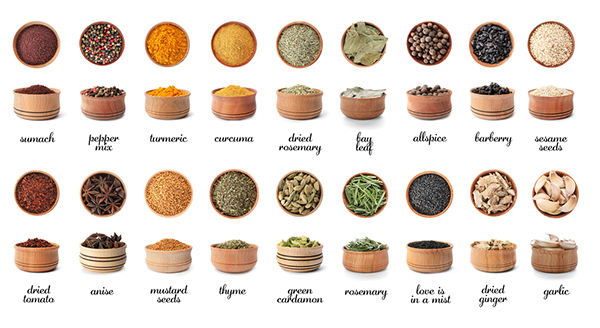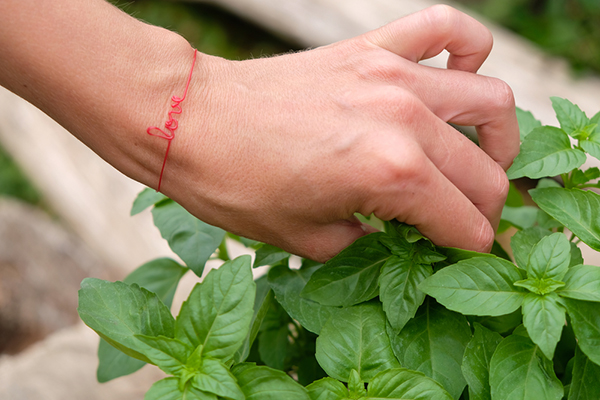Bitter Herbs: Significance, Uses, and Biblical Importance Bitter herbs have a rich history and hold significant cultural, culinary, and medicinal importance. From their crucial role in Passover traditions to their mention in the Bible, these herbs are revered for their distinctive flavors and health benefits. This article delves into what bitter herbs are, their […]
Bitter Herbs
Bitter Herbs: Significance, Uses, and Biblical Importance
Bitter herbs have a rich history and hold significant cultural, culinary, and medicinal importance. From their crucial role in Passover traditions to their mention in the Bible, these herbs are revered for their distinctive flavors and health benefits. This article delves into what bitter herbs are, their significance in the context of Passover, their mentions in the Bible, and provides recommendations for Amazon products to incorporate these herbs into your life.


What Are Bitter Herbs?
Bitter herbs refer to a variety of plants known for their sharp, pungent taste. These herbs are often used in cooking, traditional medicine, and religious ceremonies. Common examples include horseradish, endive, chicory, dandelion greens, and arugula. The bitterness of these herbs is attributed to the presence of various compounds, such as sesquiterpene lactones, which are believed to offer numerous health benefits including aiding digestion and detoxification.
Bitter Herbs in Passover
Passover, or Pesach, is a major Jewish holiday commemorating the Israelites’ exodus from Egypt. One of the key rituals during the Passover Seder is the consumption of bitter herbs, or maror, as a symbol of the bitterness and harshness of slavery endured by the Israelites. The Seder plate, a central element of the meal, includes various symbolic foods, with bitter herbs playing a pivotal role.
Traditionally, horseradish and romaine lettuce are used as bitter herbs during the Seder. The horseradish root is often grated and eaten, bringing tears to the eyes and a sharp reminder of the suffering. Romaine lettuce, while not as pungent initially, can have a bitter taste as one chews through the leaves. These herbs are consumed along with matzah (unleavened bread) and charoset (a sweet mixture of fruits and nuts), creating a balance of flavors and symbolizing the journey from slavery to freedom.
Bitter Herbs in the Bible
Bitter herbs are mentioned multiple times in the Bible, emphasizing their significance in ancient religious practices. One of the most notable references is in the Book of Exodus, which describes the first Passover meal:
“That same night they are to eat the meat roasted over the fire, along with bitter herbs, and bread made without yeast.” (Exodus 12:8)
This verse highlights the consumption of bitter herbs as part of the instructions given to the Israelites for the first Passover, establishing a ritual that continues to this day. The bitter herbs serve as a powerful symbol of the bitterness of slavery and the suffering endured by the Israelites in Egypt.
Beyond Passover, bitter herbs are also mentioned in various contexts throughout the Bible, often symbolizing suffering, repentance, and the need for spiritual cleansing.
Incorporating Bitter Herbs into Your Life
Incorporating bitter herbs into your diet can be beneficial for health. They are known for their digestive benefits, as they stimulate bile production, aiding in the digestion of fats and promoting detoxification. Additionally, bitter herbs can enhance the flavor of dishes, adding a unique sharpness that balances out other flavors.
Here are some recommended Amazon products to help you incorporate bitter herbs into your diet:
- J.R. Liggett’s Old-Fashioned Bar Shampoo – Tea Tree & Hemp Oil Formula
- Though not an edible herb, tea tree is known for its bitter properties and is often used for its antibacterial benefits.
- Organic Dandelion Root Tea
- Dandelion root is a classic bitter herb known for its detoxifying properties. This organic tea is a convenient way to enjoy its benefits.
- Horseradish Root Powder
- A versatile and convenient form of horseradish, perfect for adding a spicy kick to your dishes or using in traditional Passover meals.
- Endive Seeds for Planting
- Grow your own endive, a bitter leafy green that can be used in salads and other dishes for a fresh, sharp flavor.
- Romaine Lettuce Seeds
- Cultivate your own romaine lettuce, a staple bitter herb for Passover and a delicious addition to salads.
Bitter herbs are more than just plants with a sharp taste; they carry deep cultural, religious, and medicinal significance. From their integral role in the Passover Seder to their numerous health benefits, these herbs offer a unique combination of historical richness and practical uses. Whether you are looking to honor a tradition, explore biblical references, or simply enhance your diet, incorporating bitter herbs can provide a profound connection to the past and a pathway to better health.







